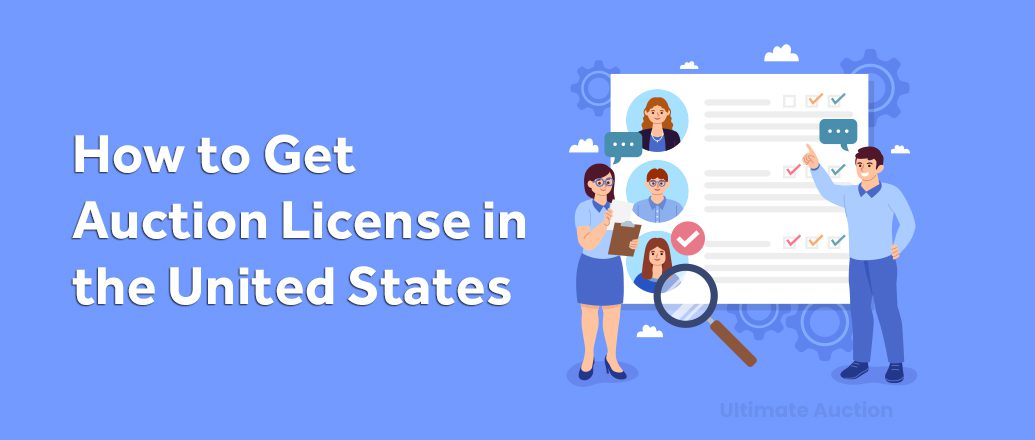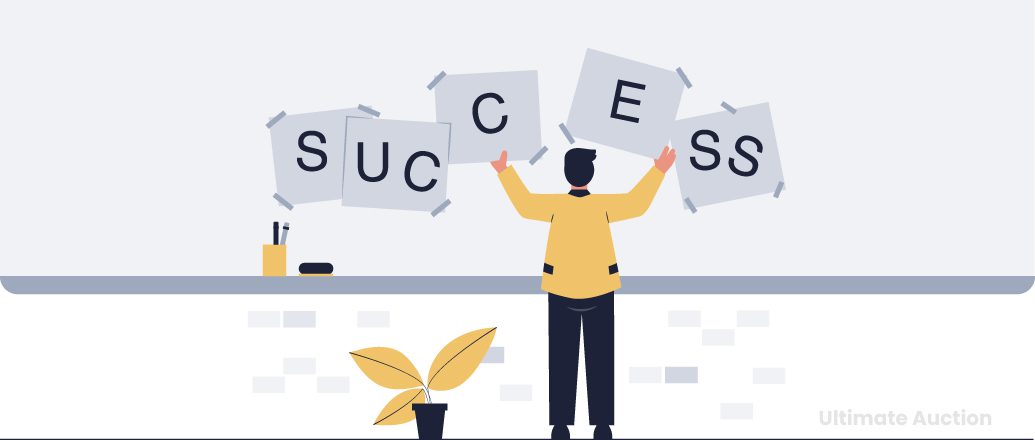



In the dynamic world of commerce and exchange, the concept of an “auction license” has gained considerable prominence. Whether you’re an aspiring entrepreneur, a car enthusiast, or someone seeking to explore the online marketplace, understanding how to obtain an auction license is a crucial step toward engaging in legitimate auctioneering activities.
Whether you’re a car dealer seeking to organize specialized car auctions, an entrepreneur aiming to set up an online auction platform, or an individual planning nonprofit auctions for charitable causes, having an auction license is non-negotiable.
This article serves as your comprehensive guide to navigating the intricacies of acquiring an auction license, specifically focusing on car auctions, online auctions, and wholesale auctions, while also shedding light on the broader auction landscape.
An auction license is an official authorization granted by regulatory authorities that permits individuals or entities to conduct auctions within a specific jurisdiction. These licenses are designed to ensure transparency, fairness, and adherence to auction laws during the process of buying and selling items. Whether you’re planning to establish a brick-and-mortar auction business, launch an auction website, or engage in nonprofit fundraising events, obtaining the necessary auctioneering license is the key to a legally compliant and ethical operation.
The requirement for an auction license stems from the need to regulate and monitor auction activities to safeguard both buyers and sellers. Auctions involve substantial financial transactions, and having a proper license ensures that the process adheres to established laws and regulations. This not only instills confidence among participants but also prevents fraudulent practices that could undermine the integrity of auctions.
The scope of individuals and businesses that require an auction license is diverse and spans various sectors. Car dealerships looking to hold car auctions, whether for classic vehicles or modern models, must obtain a specialized car auction license. The digital era has ushered in a new realm of possibilities, making online auctions increasingly popular. Individuals venturing into this domain need an online auction license to ensure legal operations on their auction website. Moreover, for those engaged in wholesale transactions, a wholesale auction license is pivotal, as it allows for the sale of goods in larger quantities.
Whether you’re employing a WordPress auction plugin, compliance with auction laws remains paramount. Moreover, even in the nonprofit sector, hosting charity auctions requires adherence to regulations, underscoring the importance of nonprofit auction software designed to facilitate lawful fundraising endeavors.
Navigating the legal landscape of auction businesses requires a profound understanding of auction laws by state, which can vary from state to state within the United States. In the following sections, we’ll delve deeper into the step-by-step process of obtaining different types of auction licenses, highlighting key considerations and providing valuable insights.
 If you’re eager to delve into the world of auctioneering, securing an auction license is your ticket to legitimacy and success. Following these essential steps will guide you through the process of obtaining the coveted auctioneering license.
If you’re eager to delve into the world of auctioneering, securing an auction license is your ticket to legitimacy and success. Following these essential steps will guide you through the process of obtaining the coveted auctioneering license.
The first crucial step on your journey is to research the specific requirements for obtaining an auction license in your state. To begin, research and understand the specific regulations governing auction activities in your state. This knowledge forms the foundation for your path towards obtaining an auction license tailored to your location.
Before diving into the world of auctions, it’s crucial to have a formal business entity in place. Register your business with the appropriate state agency, ensuring you choose a business structure that aligns with your goals, whether it’s a sole proprietorship, partnership, LLC, or corporation.
Securing a business license is a key aspect of legitimizing your auction business. This license grants you the legal authority to operate your auction business within your jurisdiction. Make sure to include details about the type of auction activities you plan to engage in, such as online auctions, wholesale auctions, or nonprofit auctions.
For any commercial enterprise, including auction businesses, understanding and adhering to sales tax regulations is vital. Obtaining sales tax registration is a step that ensures you’re compliant with taxation laws. This ensures that you are in compliance with tax regulations and can properly collect and remit sales taxes as required.
To excel in the auction arena, consider enrolling in an auctioneering course. These courses provide insights into auction practices, bidder psychology, and legal considerations, equipping you with the knowledge to conduct successful auctions. This step is particularly important for those seeking an auctioneering license.
Many states require aspiring auctioneers to pass a state exam to demonstrate their understanding of auction laws, practices, and ethics. Prepare diligently to ensure success on this crucial step.
With your groundwork laid, it’s time to formally apply for your auction license. Prepare all required documentation, including your business registration, EIN, and exam results, and submit your application to the appropriate state agency overseeing auction licenses.
 Securing an auction license is a significant milestone for individuals and businesses venturing into the world of auctions, whether it’s for car auctions, online auction platforms, or wholesale auctions. To ensure a smooth and successful journey, consider these valuable tips that will help you navigate the process with confidence and precision.
Securing an auction license is a significant milestone for individuals and businesses venturing into the world of auctions, whether it’s for car auctions, online auction platforms, or wholesale auctions. To ensure a smooth and successful journey, consider these valuable tips that will help you navigate the process with confidence and precision.
Obtaining an auction license involves a series of steps, paperwork, and potential waiting periods. It’s advisable to begin the process well in advance to avoid last-minute rushes and delays. Starting early allows you ample time to gather required documents, fulfill obligations, and address any unforeseen challenges that might arise.
Acquiring an auction license requires fees, including application fees, examination fees, and licensing fees. Be prepared to budget for these expenses as part of your journey to become a licensed auctioneer. Understanding the financial commitment involved will help you plan effectively and avoid any surprises.
The application process for an auction license involves detailed instructions provided by your state’s regulatory agency. It’s imperative to read and follow these instructions meticulously. Any errors or omissions could result in delays or rejection of your application. Pay close attention to deadlines, document requirements, and submission procedures.
Navigating legal and financial aspects can be complex, especially if you’re new to the auction business landscape. If you’re uncertain about certain legal or financial requirements, consider seeking assistance from a lawyer or accountant with expertise in auction-related matters. Their guidance can help you ensure that you’re in compliance with auction laws and regulations.
Obtaining an auction license opens a gateway to a world of opportunities, empowering you to engage in legitimate auctioneering activities with confidence. The benefits of acquiring an auctioneering license are multifaceted, ranging from credibility and legal compliance to the ability to establish your auction website using tools like the WordPress auction plugin and engaging in nonprofit auction initiatives powered by non-profit auction software.
However, the path to obtaining an auction license is not without its challenges. Navigating through state-specific requirements, fees, and regulatory intricacies can be complex. For those seeking guidance on “how to get an auction license,” this guide has demystified the process. Remember that your auctioneering license is not just a piece of paper; it’s a ticket where you can create, innovate, and contribute to the auction industry while adhering to auction laws.
To gather more information about auction licenses, explore resources provided by your state’s regulatory agency overseeing auctions. Additionally, you can check pricing for our auction script to embark on a journey that can lead to a successful auction business.